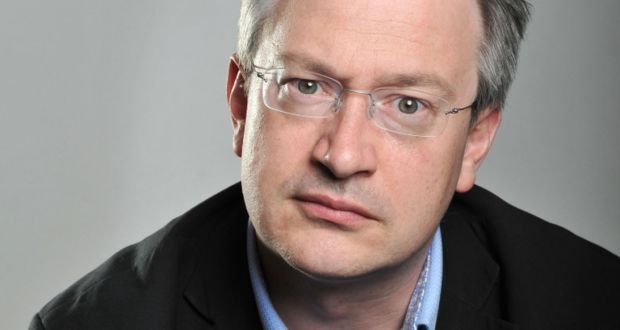You don’t have to be mad to tell jokes here…
...but we've no idea if it helps!

I am working on a radio documentary about comedians and happiness. The image of the comedian drawing guffaws from a multitude, then weeping, drunk and alone, is a potent image. The suicide of Robin Williams has brought it to the fore again.
The interviews with comedy historians, mental health workers, psychotherapists, authors and comedians have been enlightening and contradictory. When dealing with human behaviour, it is unlikely we’ll find a definitive answer, where would the fun and misery be in that? Les Dawson has cropped up twice as the non-melancholy clown, a gregarious entertainer on and offstage.
One of Kenneth Williams’s friends revealed that his cooker was never covered in cling film when has around his flat, and that he even used Kenneth’s loo, despite oft relayed stories that this was strictly forbidden. If he was in a bad mood, he’d make you go and use his mother’s lavatory next door.
Darryl Cunningham, a former mental health worker and creator of Psychiatric Tales, believes that the likes of Spike Milligan manage to create despite the black dog that hang heavy over them, not because. Graeme Garden found out that comedians do seem to have a higher than average suicide rate, though not as high as dancers or dentists. My dentist is also a comedian and he also moves well, so I better have an eye on a few other dentists just in case.
Jo Brand, who spent ten years as a psychiatric nurse, said: “In a simplistic way, comedians are not all sad people, but I think they are all quite emotionally disturbed.”
There was consideration that the number of comedians who were adopted or had lost a parent was also above the statistical norm. This doesn’t mean that the adopted and bereaved all secretly, or openly, wish to seek the approbation of strangers in boozy environments, or that an audience perpetually resembles a surrogate mother or father. Your laughter is not a teat. (oh no, I shouldn’t have typed that, now when I am performing tonight I will be dogged by Freudian imagery).
During some of the interviews, we toyed with the idea that stand up can lead to a sort of self-inflicted bi-polar. (I am using the term lightly, and don’t wish to demean those who really suffer. This is the danger of doing any documentary about mental health, I realise that terms being bandied about may be seen as flippancy. I will wait to see the audience log of complaints to find out where I went wrong this time).
The idea of a self-inflicted bipolar situation refers to the sharp change from being alone, possibly all day, to standing in front of an audience and showing off intensely, allowing your mind to go off on as many flights of fancy as possible and having maximum engagement with your imagination (sometimes with a seeming multitude of inner monologues mixed up with what comes out of your mouth), before returning to solitude and sleeplessness, analysing the creature that was so exuberant and vivacious in white box hotel room.
One thing stressed by health professionals is that what we have become is energetically sculpted by our childhood experience, whether a comedian or lab technician or a nurse. Is there one event that, if removed from our childhood experience, would change much of what we are? If I hadn’t been in that car accident when I was three, would I have been less publicly needy when spotlit? Does it matter? Has it happened and we might as well just get on with it without looking back.
Talking to Barry Cryer (he would like to stress this was not in the pub. We were in the pub.) he brought up the death of his father when he was five. I mentioned Jo’s comment on the loss of a parent at an early age, and Barry looked surprised: “Have I been doing all this because of that?”
Is it dangerous to link melancholy or madness to creativity? Is stand up therapy for the act and the audience? Has the psychological make up of the stand up changed now that a performance is not just a comedic mask, but can also be autobiographical? While Kenneth Williams and Frankie Howerd had to keep their sexuality under wraps, now that part of their life can be expressed and even win awards rather than cautions. How would this have changed their work?
Do some audiences like the vision of the tragic comedian? Is there a superior or snide contentment in thinking, “You know that person that made everyone around us laugh and brought us so much happiness, don’t worry, in real life, they were miserable and loveless”? I am not sure how many answers we’ll find, or indeed what use they’ll be, but I am finding the investigation fascinating.
I don’t know why I am what I am, but I am, so I better get used to it.
Tears Of A Clown airs on Radio 4 at 10pm on Saturday 1 November. Robin Ince’s stand-up tour visits Newcastle, Manchester and Liverpool amongst others in the coming weeks. Book tickets.



































